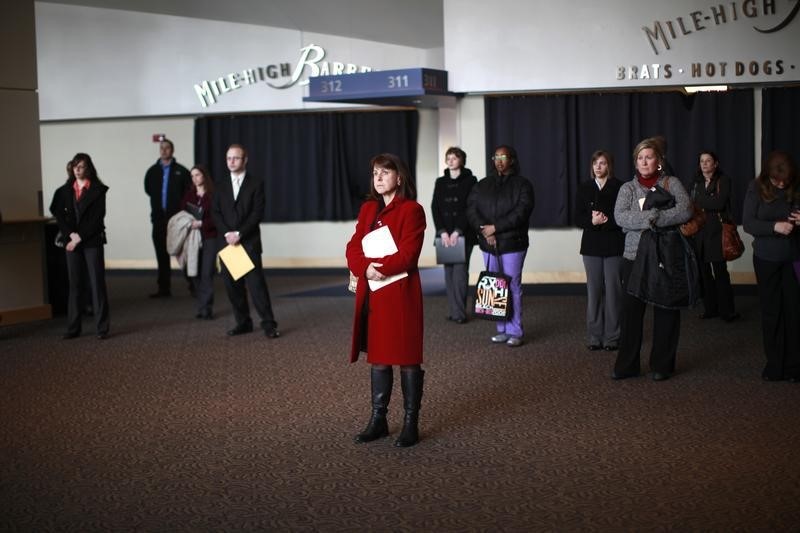Investing.com - The U.S. Labor Department will release its monthly nonfarm payrolls report at 8:30AM ET (1230GMT) on Friday and experts widely believe that the results will set a rate hike by the Federal Reserve (Fed) at the meeting on June 14 in stone.
The consensus forecast is that the data will show jobs growth of 185,000 in May, following an increase of 211,000 in the previous month, while the unemployment rate is forecast to hold steady at 4.4%, its lowest level since 2007.
Most analysts believe that the U.S. economy is at or near full employment, a context which makes their focus shift from the usual headline numbers to wage inflation.
Average hourly earnings are expected to rise 0.2% from April after gaining 0.3% a month earlier, while the annualized rate is estimated to rise to 2.6%, from the prior 2.5%.
"If a genie appeared to me and said I will give you a perfectly clear crystal ball for any one data series the Fed is watching, I would choose the average hourly earnings report," Brown Brothers Harriman chief investment strategist Scott Clemons told CNBC.
In simple terms, increasing wages give consumers more purchasing power and tends to translate to rising prices.
But the Fed itself had already declared its expectations to raise rates two more times this year and markets themselves are pricing in odds of around 88% for a 25 basis point hike at the next meeting, according to Investing.com’s Fed Rate Monitor Tool.
Allianz chief economic adviser Mohamed El-Erian expects the jobs report to confirm the high likelihood that the Fed will increase interest rates on June 14.
“The longer the U.S. economy relies on unconventional monetary policies, the lower the benefits and the higher the collateral damage and unintended consequences,” he wrote in an opinion piece for Bloomberg.
“The latter two include the risks of excessive financial risk-taking by market participants; inappropriate resource allocation; distorted asset class correlations; damaging low volatility; and, directly for central banks, greater institutional vulnerability to political interference,” he warned.
In fact, El-Erian insisted that “it would take a really awful report, including job creation well below 80,000 and slowing wage growth, to materially alter this likelihood.”
Jefferies chief financial economist Ward McCarthy appeared to be of the same opinion though he also admitted the inflation figures, out just hours before the Fed’s June 14 announcement, would also have a slim chance to alter the outcome as data so far had been “solid enough” to for the American central bank to move forward.
"You'd have to get near catastrophic numbers for employment and the CPI to get the Fed to hold off raising rates at that meeting," he explained in an interview with CNBC.
